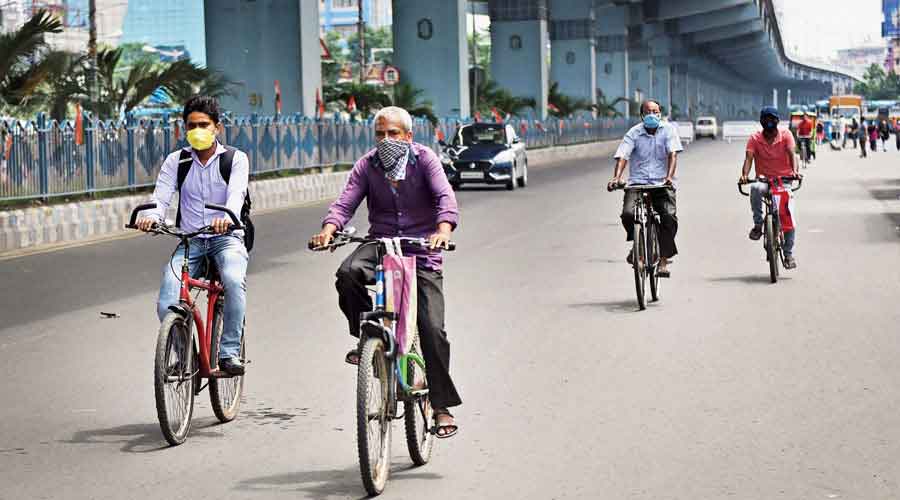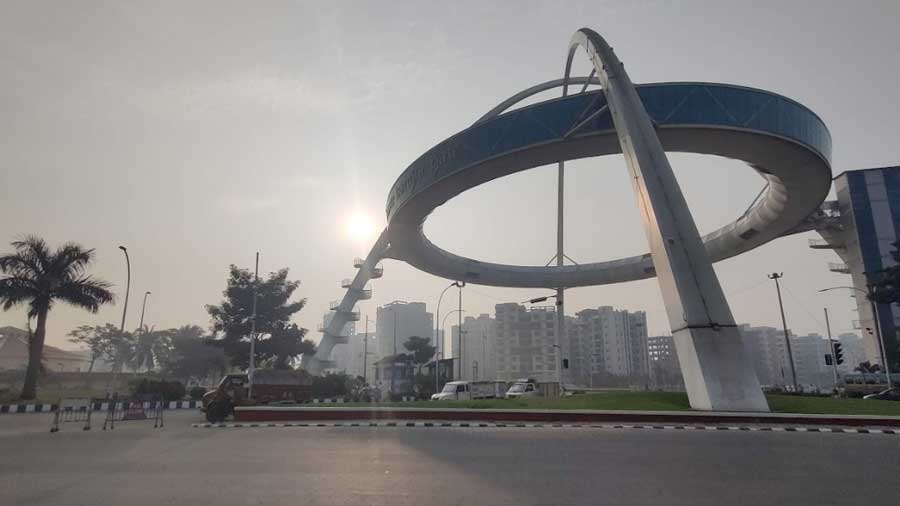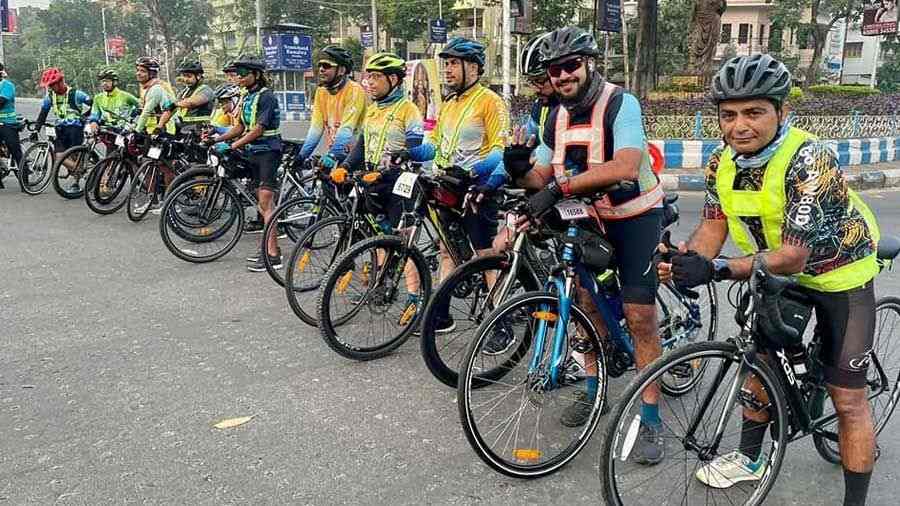Twelve bicyclists have been prosecuted in the city for riding cycles in an inebriated state in the past week.
Police said in all the cases, the cyclists claimed they were not aware that riding a cycle in an intoxicated state was an offence.
Kolkata police have started a drive against drink riding among cyclists following a spate of road accidents involving cycles. At least three cyclists have died and 10 injured in accidents in the last month.
Now, cyclists may be stopped and asked to undergo a breathalyser test on the road to detect presence of alcohol in their blood. If the reading of the machine is higher than the permissible limit prescribed under Section 185 of the Motor Vehicles Act, then the cyclist is prosecuted for creating public nuisance and fined Rs 200, traffic cops said.
“Several bicyclists have objected to the breathalyser test saying it was applicable only to motorists and that their cycles do not fall under that category. We had to explain to them that even if cycles cannot be categorised as motor vehicles but are equally, if not more, vulnerable to accidents and for their own safety it was important to undergo the test,” said an officer posted near Rabindra Sarobar.
Of the 12 prosecutions, seven were reported from Jorabagan traffic guard alone that covers a large portion of Chittaranjan Avenue, parts of MG Road, Rabindra Sarani, Vivekananda Road, Beadon Street and Strand Road. Two cases were reported from Sealdah traffic guard that includes thoroughfares like College Street and Amherst Street. One each was reported from Ultadanga, Behala and Gariahat.
Every cyclist found to be riding in an inebriated state through the breathalyser test is sent to a government hospital for a formal medical test and then detained at the local police station for the next few hours so that he or she does not ride again in a state of intoxication, the police said. The cyclist is prosecuted under Section 290 of the Indian Penal Code and fined Rs 200.
Senior police officers said cyclists were most vulnerable on the roads as they neither wear headgear like motorcyclists nor do they have the pace of a motor vehicle.
“It is extremely risky for a cyclist on a thoroughfare where other motor vehicles ply at double or triple a cycle’s speed. The risk is aggravated if the cyclist is in an inebriated state. We are trying to address this problem,” said the officer.
According to Section 185 of the MV Act, a person can be imprisoned for up to six months or asked to pay a fine of Rs 2,000 if alcohol exceeding 30mg per 100ml is detected in the bloodstream through a breathalyser test. Second and subsequent offences can lead to an imprisonment for two years or a fine of Rs 3,000.


